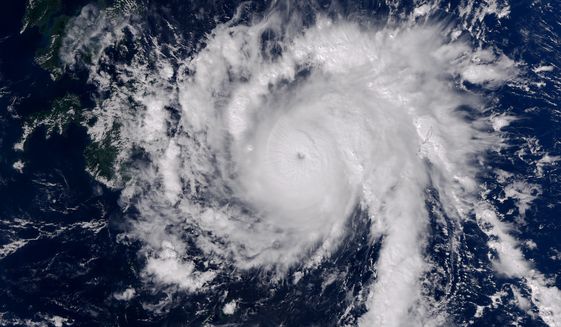A Degree of Uncertainty
WashingtonTimes.com

Everybody knows July is hot, unless he lives somewhere below the equator, where the seasons are upside down. Government scientists say this past month was the hottest July ever. Before everyone breaks into a cold sweat over global warming, however, the wise will look beyond the sensational headlines and remember that when the government writes the checks, it gets the best science money can buy.
The National Oceanic and Atmospheric Administration (NOAA) says that according to its recordings the average temperature on the globe in July was 61.86 degrees Fahrenheit, 1.46 degrees above the usual average and most significantly, 0.14 degrees higher than the July record set in 1998. Tom Harris, an environmental policy analyst, pointed out in these pages this week that a sliver of a degree is within the statistical margin of error, meaning that the actual composite reading might be no record at all. Most humans can’t sense a change in temperature of even 1 degree over the course of a minute, so no one sweated the tiny increase, if indeed there was one.
Nonetheless, the worldwide global-warming lobby will no doubt splash the record in bold type across voluminous reports prepared for the United Nations Conference on Climate Change, scheduled for Paris in December. The environmental fanatics and their allies in government can be expected to conclude that the record will prove the climate is changing. Who doubts it? It always has.
But facts, inconvenient and persistent, continue to contradict the prevailing orthodoxy. Patrick Michaels, the former Virginia state climatologist and current director of the Center for the Study of Science at the Cato Institute, recently discovered that monthly temperature readings at Reagan National Airport in Washington, D.C. had suddenly jumped by an average of 2 degrees Fahrenheit more than those at Washington Dulles International Airport, which is only 30 miles away. When he pointed out the inconsistency to officials at NOAA’s National Weather Service, they concluded their sensor at Reagan National was defective and replaced it. They refused, however, to correct 19 months of faulty data, leading Mr. Michaels to observe at the website Real Clear Policy, that “it is really politically unwise not to do a simple adjustment on these obviously-too-hot data. With all of the claims that federal science is biased in service of the president’s global-warming agenda, the agency should bend over backwards to expunge erroneous record-high readings.”
One broken thermometer does not invalidate NOAA’s claim of record warmth, but in June, NOAA revised its method for computing global ocean temperatures by discounting readings from floating buoys that have been recording cooler-than-expected readings. The observed 18-year pause in rising temperatures, which flabbergasts global warming believers, suddenly disappeared, replaced by a more politically acceptable trend showing a slowly heating planet.
The government agency’s decision to change its
method for calculating climate leads Mr. Michaels to
bluntly ask, “Are political considerations
superseding scientific ones at the National Oceanic
and Atmospheric Administration?” Surely not. Would
government scientists do such a thing? But the
answer to his question is evident and in concert
with numerous administration environmental and
energy measures that conform to the prevailing
climate change agenda

